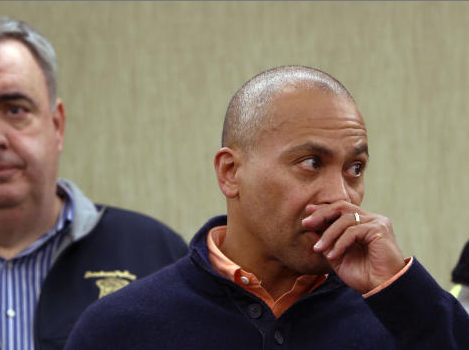Officials from Boston to Washington seemed overwhelmed by the task of managing the aftermath of the shocking terror attack at the finish line of the Boston Marathon Monday.
Though the White House called the two bombings acts of “terror,” President Barack Obama declined to do so in his remarks to the nation–and the Department of Homeland Security had not issued any terror alerts as of Tuesday morning, as might be expected.
Meanwhile, Massachusetts Gov. Deval Patrick referred to the site of the terror attacks in downtown Boston as a “crime scene,” and could not answer reporters’ questions about whether and how people would be able to commute to the area as usual the following morning.
“We are very much going to depend on you,” he told journalists during a press conference stuffed with politicians and law enforcement officials–but very few answers.
All day long, media confusion reigned as conflicting reports emerged about whether a third explosion, at the JFK library on the city’s South Side, was related to the marathon attacks. News alerts flashed that as many as five additional bombs had been found, then that the devices may not have been bombs. A Saudi student injured in the blasts was said to be a suspect, then a “person of interest,” then perhaps not involved at all.
Without much meaningful information to provide the public, local law enforcement was reduced asking members of the public to look out for a “darker-skinned” and possibly “foreign” suspect.
Absent was the clarity Americans had come to expect after the 9/11 attacks, when terror alerts were color-coded, when attacks were more than “man-caused disasters,” and when the country was self-consciously on a war footing.
What we are witnessing may be the result of the War on Terror being addressed as a law enforcement problem rather than as an urgent national security challenge.
In addressing the nation, President Obama insisted on admonishing the public not to jump to conclusions. He had a similar reaction after the Fort Hood shootings in 2009–which, four years later, the administration still prefers not to describe as a terror attack.
He also emphasized that Democrats and Republicans were united in their horror at the bombings–as if the point needed making, as if his primary concern was political blame, not whether the country had been attacked by an enemy.
He assured Americans that the government would find out who had carried out the attack, and why–again treating the bombings as a crime that hinged on motive, rather than as a self-evident evil.
In the original 9/11 attack that inaugurated an era the Obama administration has been keen to forget, there was plenty of confusion: the President airborne, the Vice President in an “undisclosed location.”
Yet leadership emerged. Even as his emergency command center lay in the wreckage of the World Trade Center, New York Mayor Rudy Giuliani rose to the task. The country and its leaders soon rallied–calmly, solemnly, resolutely.
On Monday, the heroism of first responders, medical personnel, and bystanders shone through, even as the nation’s political and security echelon struggled to adapt once again to an old problem that had never really gone away.
If “What difference does it make?” sums up the Benghazi debacle of 2012, “We are very much going to depend on you” could live on–in a positive way–as the epigram of the Boston Marathon attacks.

COMMENTS
Please let us know if you're having issues with commenting.